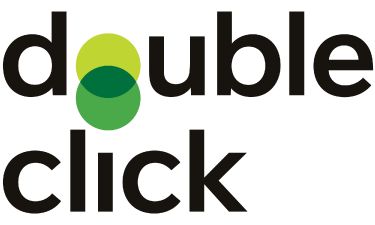Google’s Antitrust Troubles: A Storm on the Horizon
April 19, 2025, 5:17 am
Google
Location: United States, New York
Google is in hot water. Again. A federal judge recently ruled that the tech giant holds illegal monopolies in online advertising. This is the second major antitrust ruling against Google in less than a year. The implications are massive, not just for Google, but for the entire digital advertising landscape.
The ruling came after a lengthy trial in Alexandria, Virginia. The judge, Leonie Brinkema, stated that Google’s practices “substantially harmed” both publishers and users. This isn’t just a slap on the wrist; it’s a wake-up call. Google is caught between a rock and a hard place. On one side, it faces a government determined to break its grip on the ad market. On the other, it’s battling new competitors in the rapidly evolving world of artificial intelligence.
Google’s ad business has long been its cash cow. But the waters are getting choppy. The company’s stock has dipped significantly this year, down 20%. As the ad market cools, Google’s revenue growth is stalling. This is not just a minor setback; it’s a potential turning point. The ruling could force Google to divest parts of its ad-tech business, opening the door for smaller players to enter the fray. Amazon is already eyeing this opportunity, having expanded its own ad business in recent years.
The judge’s decision is a double-edged sword. While it may create opportunities for competitors, it also raises questions about the future of Google’s ad technology. The trial featured extensive testimony and evidence, highlighting the depth of the government’s case. Google’s acquisitions, like DoubleClick and Admeld, were scrutinized, but the judge found that they did not harm competition. This leaves a mixed bag for Google, as it prepares to appeal parts of the ruling.
The implications of this ruling extend beyond the courtroom. The advertising landscape is poised for change. Former DOJ antitrust chief Jonathan Kanter suggests that the remedies will be forward-looking. This means the changes will not just address past practices but will shape the future of advertising. The infrastructure for selling ads against AI will be crucial. New opportunities may arise for businesses to monetize AI without relying on Google.
Kanter’s insights reveal a broader concern. Google’s monopoly has stifled competition and innovation. The entire advertising ecosystem has suffered. Publishers have been “overcharged and underpaid,” creating a ripple effect throughout the industry. This ruling could be the catalyst for a more balanced playing field.
However, the road ahead is fraught with uncertainty. The appeals process could drag on for years. Many publishers and advertisers are in a holding pattern, waiting to see how the dust settles. Google’s dominance has created a feedback loop that is hard to break. The company has built a fortress around its ad technology, making it difficult for newcomers to gain a foothold.
As the remedies trial approaches, the stakes are high. The Justice Department is pushing for significant changes, including breaking up Google’s Chrome browser and eliminating exclusive agreements, like its deal with Apple for search on iPhones. The judge’s ruling is expected by August, but the outcome remains uncertain.
Industry experts are watching closely. Some believe that Google may have to loosen restrictions on its platforms, like YouTube, to encourage competition. This could create new opportunities for other publishers and ad tech players. The landscape is shifting, and those who adapt quickly may find themselves in a favorable position.
The future of Google’s ad business hangs in the balance. If the company is forced to divest parts of its operations, it could lose a significant revenue stream. The ad market is already under pressure, and a breakup could exacerbate the situation. Analysts warn that the revenue hit from the ad market case could be more dramatic than the impact from the search case.
In the grand scheme, this is a pivotal moment for the tech industry. Google’s antitrust troubles are a reflection of a larger struggle between innovation and monopoly. The ruling could pave the way for a more competitive landscape, where new players can thrive. But it also serves as a reminder of the challenges that come with market dominance.
As the appeals process unfolds, one thing is clear: the battle for the future of digital advertising is just beginning. Google may be a giant, but giants can fall. The winds of change are blowing, and the outcome will shape the industry for years to come. The question remains: will Google adapt, or will it cling to its old ways? Only time will tell.
The ruling came after a lengthy trial in Alexandria, Virginia. The judge, Leonie Brinkema, stated that Google’s practices “substantially harmed” both publishers and users. This isn’t just a slap on the wrist; it’s a wake-up call. Google is caught between a rock and a hard place. On one side, it faces a government determined to break its grip on the ad market. On the other, it’s battling new competitors in the rapidly evolving world of artificial intelligence.
Google’s ad business has long been its cash cow. But the waters are getting choppy. The company’s stock has dipped significantly this year, down 20%. As the ad market cools, Google’s revenue growth is stalling. This is not just a minor setback; it’s a potential turning point. The ruling could force Google to divest parts of its ad-tech business, opening the door for smaller players to enter the fray. Amazon is already eyeing this opportunity, having expanded its own ad business in recent years.
The judge’s decision is a double-edged sword. While it may create opportunities for competitors, it also raises questions about the future of Google’s ad technology. The trial featured extensive testimony and evidence, highlighting the depth of the government’s case. Google’s acquisitions, like DoubleClick and Admeld, were scrutinized, but the judge found that they did not harm competition. This leaves a mixed bag for Google, as it prepares to appeal parts of the ruling.
The implications of this ruling extend beyond the courtroom. The advertising landscape is poised for change. Former DOJ antitrust chief Jonathan Kanter suggests that the remedies will be forward-looking. This means the changes will not just address past practices but will shape the future of advertising. The infrastructure for selling ads against AI will be crucial. New opportunities may arise for businesses to monetize AI without relying on Google.
Kanter’s insights reveal a broader concern. Google’s monopoly has stifled competition and innovation. The entire advertising ecosystem has suffered. Publishers have been “overcharged and underpaid,” creating a ripple effect throughout the industry. This ruling could be the catalyst for a more balanced playing field.
However, the road ahead is fraught with uncertainty. The appeals process could drag on for years. Many publishers and advertisers are in a holding pattern, waiting to see how the dust settles. Google’s dominance has created a feedback loop that is hard to break. The company has built a fortress around its ad technology, making it difficult for newcomers to gain a foothold.
As the remedies trial approaches, the stakes are high. The Justice Department is pushing for significant changes, including breaking up Google’s Chrome browser and eliminating exclusive agreements, like its deal with Apple for search on iPhones. The judge’s ruling is expected by August, but the outcome remains uncertain.
Industry experts are watching closely. Some believe that Google may have to loosen restrictions on its platforms, like YouTube, to encourage competition. This could create new opportunities for other publishers and ad tech players. The landscape is shifting, and those who adapt quickly may find themselves in a favorable position.
The future of Google’s ad business hangs in the balance. If the company is forced to divest parts of its operations, it could lose a significant revenue stream. The ad market is already under pressure, and a breakup could exacerbate the situation. Analysts warn that the revenue hit from the ad market case could be more dramatic than the impact from the search case.
In the grand scheme, this is a pivotal moment for the tech industry. Google’s antitrust troubles are a reflection of a larger struggle between innovation and monopoly. The ruling could pave the way for a more competitive landscape, where new players can thrive. But it also serves as a reminder of the challenges that come with market dominance.
As the appeals process unfolds, one thing is clear: the battle for the future of digital advertising is just beginning. Google may be a giant, but giants can fall. The winds of change are blowing, and the outcome will shape the industry for years to come. The question remains: will Google adapt, or will it cling to its old ways? Only time will tell.

